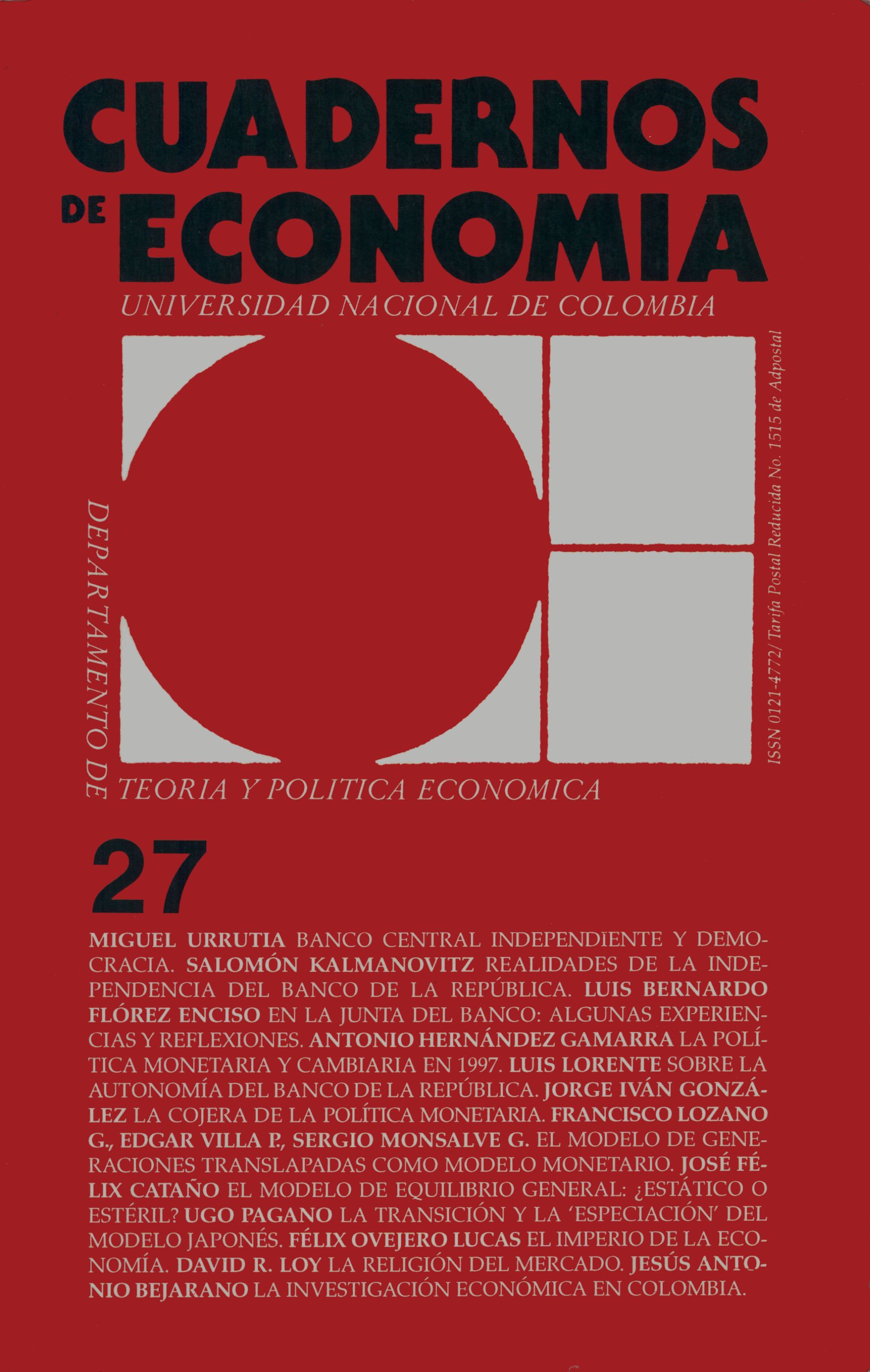La transición y la especiación del modelo japonés
Transition and the 'Speciation'of Japanese Model
Keywords:
modelo japonés, derechos, tecnologías, equilibrios organizacionales, economías en transición, capitalismo, modelos de producción, socialismo, postguerra, economía industrial (es)Downloads
inferior to both species, speciation may require allopatric conditions. The evolution of economic systems may follow a similar path. Organizational species are characterized by rights and technologies that fit each other and define 'organizational equilibria' superioro hybrid combinations with rights and technologies of other species. Competition among the members of the same organizational species may
improve its average efficiency but, because of the complementarities between rights and technology, it may also inhibit the emergence of new potentially more efficient 'organizational equilibria'. These issues are particularly important for present 'transition economies' such as the former socialist countries and are relevant for the
understanding of 'past transi tion economies' such as the post-war Japanese economy. Indeed, the former may learn from the latter that it may be misleading to see the present trasformations as the 'transition to a unique form of capitalismo
How to Cite
APA
ACM
ACS
ABNT
Chicago
Harvard
IEEE
MLA
Turabian
Vancouver
Download Citation
Article abstract page views
Downloads
License
Copyright (c) 1997 Cuadernos de EconomíaCuadernos de Economía through the Libraries Division of the Universidad Nacional de Colombia promotes and guarantees open access to all its contents. The articles published by the journal are available globally with open access and licensed under the terms of Creative Commons Attribution-NonCommercial-No_Derivatives 4.0 International (CC BY-NC-ND 4.0), which implies the following:




















